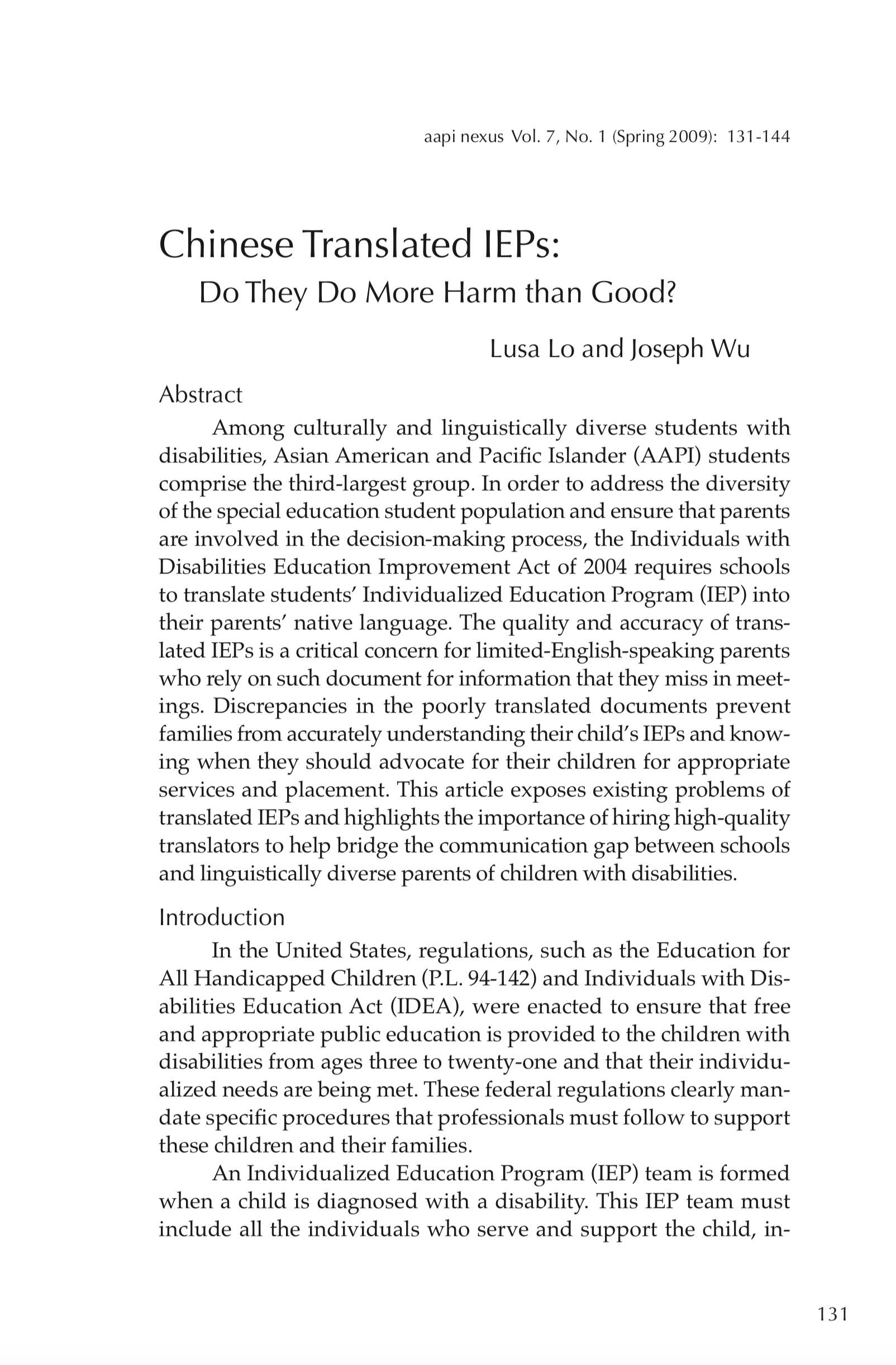“Chinese Translated IEPs: Do They Do More Harm than Good?”
Volume 7:1, p.131 (2009)
by Lusa Lo and Joseph Wu
ABSTRACT: Among culturally and linguistically diverse students with disabilities, Asian American and Pacific Islander (AAPI) students comprise the third-largest group. In order to address the diversity of the special education student population and ensure that parents are involved in the decision-making process, the Individuals with Disabilities Education Improvement Act of 2004 requires schools to translate students’ Individualized Education Program (IEP) into their parents’ native language. The quality and accuracy of translated IEPs is a critical concern for limited-English-speaking parents who rely on such document for information that they miss in meetings. Discrepancies in the poorly translated documents prevent families from accurately understanding their child’s IEPs and knowing when they should advocate for their children for appropriate services and placement. This article exposes existing problems of translated IEPs and highlights the importance of hiring high-quality translators to help bridge the communication gap between schools and linguistically diverse parents of children with disabilities.
PREVIEW:

 Download
Download
Article Citation:
Lusa Lo and Joseph Wu (2009) Chinese Translated IEPs: Do They Do More Harm than Good?. AAPI Nexus: Policy, Practice and Community: 2009, Vol. 7, No. 1, pp. 131-148.
